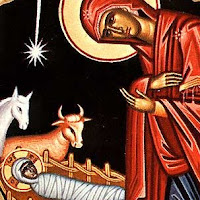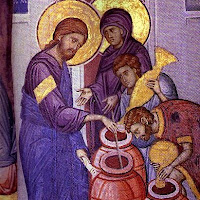 Originally, the border between the Church and the world was put up, not by the Church, but by the world, which could find no use for, and would not tolerate, this indigestible people. The Church constituted something like an Indian reservation or a ghetto, or even worse, a leper colony within society, a social entity which should not be, but nonetheless was. It was an embarrassment for and accusation against the classes that ruled the world.
Originally, the border between the Church and the world was put up, not by the Church, but by the world, which could find no use for, and would not tolerate, this indigestible people. The Church constituted something like an Indian reservation or a ghetto, or even worse, a leper colony within society, a social entity which should not be, but nonetheless was. It was an embarrassment for and accusation against the classes that ruled the world. Among those untouchable and unmentionable people, leaders arose, chosen not for their excellence or eminence in any worldly endeavor, but for their abject surrender to the service of the others. The world looked on in wonder at these hopeless imbeciles following a crucified criminal, surprised that they could have so much love for one another, but even more stupefied at their lack of survival instinct—they didn’t fight back when attacked by the world, they prayed for, and even more incomprehensibly, thanked those who injured and killed them!
They would not contribute any more than was exacted from them for the maintenance of the world system. They didn’t stand up for their own rights. They didn’t agitate for social reforms or strive for the betterment of any society except their own. Only among themselves, by common and unwritten consent, did they abolish customs that the world regarded normal, but which they abhorred—infanticide, sexual license, slavery, the “festivals.” In this regard, the world felt justified in labeling them “haters of humanity,” in segregating and controlling them by an elaborate system of “tests,” such as the performance of acts of public worship to the state deities.
The charge of atheism brought against them was designed to infuriate the working masses of the world, which by and large were “religious,” and which could be depended upon to punish the Church at the slightest provocation, thereby freeing the world rulers from overt responsibility for the persecution of these deranged trouble makers, undeserving of the name “human.”
No, the world had no use for, and would not tolerate, this indigestible people. It would give them no avenue for worldly success or security—economic, educational, social—not unless they, individually, renounced their allegiance to their pathetic God by publicly conforming to the world system and taking what they called among themselves “the mark of the beast.” If they did that, they were allowed the cross the border. They were free at last from the unreasonable restrictions placed upon them by their crazy beliefs.
After some time had passed, the Church, to the astonishment and discomfort of the world and its rulers, had grown much larger than had been anticipated. The elaborate system of tests and containment strategies that they devised could not keep the borders of this neglected area from expanding. The Church even crept into places it had never been seen before. It was to be expected that among the unschooled rabble, some would defect to this weird cult, lured by the rumors of “brotherly love” and other such nonsense. Everyone knew that these were just cover-ups for their unnatural practices, hypocrites all of them.
But now, and with more and more regularity every day, it seemed that once responsible citizens of the world were becoming uncooperative and difficult, excusing themselves from participating in the rites and rituals, even refusing the world’s most reasonable demands. The infection had spread, from the mere denizens even to the rulers of the world order. What was to be done? How was the world to maintain the border between itself and the Church?
There was nothing else to do but, swallowing its pride (just for a moment), the world would have to “become” the Church. It would have to get inside (disgusting!) the barricade where all that refuse and filth calling itself “human” was holed up, and somehow harness that teeming multitude to a new “world machine” under its benign and rational management.
Since the other side of the border was now larger than the world, there was nothing to do but jump the fence. Soon, “under new management” the Church, having become the world, would be so universal, so thoroughly ecumenical, that to be a leader of it would be an even greater honor than it once was to be a world ruler in former times.
It didn’t matter, not really, that the world would have to let go its old props and proof texts and principles. The Church had a Book that it had gathered together from one of those barbaric, backward tribes, adding to it a few chapters of its own. These could be imbued with new meanings, this Book could be used as a kind of Trojan horse by the world rulers to bring their powerful premises into play, first blocking, then replacing the so-called “promises” in that stupid Book.
“The kingdom of the world has become the kingdom of our Lord and his Christ, and he will reign for ever and ever.” See? Their own Book is talking about us! Now, no one can oppose us! To make sure of this, all we have to do is establish “tests” to qualify only those who agree with us, send them to school, and teach them to parrot our plans. As for those who won’t…
So a new border had to be put up.
Again, it was put up by the world, not by the Church.
It became difficult, sometimes and in some places, to distinguish just who was on this side of the border, and who was on the other. The world had learned how to juggle names, titles and powers in such a way that sometimes even it got confused about who was who and which was which. The new border, though, did work. The Church was contained, even though imperfectly. The world now had a free hand to save itself, to save the planet, to liberate all humanity from the darkness of ancient superstition—Imagine that! A dying and resurrecting God!—and from the “haters of humanity” who think that they alone possess the truth, and that there is only one way!
“The nerve of that bunch of fanatics who call themselves ‘the Church’—why, we can’t even see them! But we can hear them, and they trouble us still, even to this day.”
But, my brothers, let me remind you of these things…
There is no need to be afraid, little flock, for it has pleased your Father to give you the Kingdom.
Luke 12:32
You must not love this passing world
or anything that is in the world.
The love of the Father cannot be
in any man who loves the world.
1 John 2:15
If the world hates you,
remember that it hated Me before you.
If you belonged to the world,
the world would love you as its own;
but because you do not belong to the world,
because My choice withdrew you from the world,
therefore the world hates you.
Remember the words I said to you:
A servant is not greater than his master.
If they persecuted Me,
they will persecute you too;
if they kept My word,
they will keep yours as well.
But it will be on My account that they will do all this,
because they do not know the One who sent Me.
John 15:18-21
I have told you all this
so that your faith may not be shaken.
They will expel you from the synagogues,
and indeed the hour is coming
when anyone who kills you will think he is doing a holy duty for God.
John 16:1-2
I have told you all this
so that you may find peace in Me.
In the world you will have trouble,
but be brave:
I have conquered the world.
John 16:33



















































